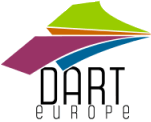Mostrar el registro sencillo del ítem
Development of 52 new polymorphic SSR markers from cherimoya (Annona cherimola Mill.): transferability to related taxa and selection of a reduced set for DNA fingerprinting and diversity studies
| dc.contributor.author | Escribano, Pilar | |
| dc.contributor.author | Viruel, María Ángeles | |
| dc.contributor.author | Hormaza, José Ignacio | |
| dc.date.accessioned | 2024-02-06T16:11:59Z | |
| dc.date.available | 2024-02-06T16:11:59Z | |
| dc.date.issued | 2008-03-08 | |
| dc.identifier.citation | Escribano, P., Viruel, M. A., & Hormaza, J. I. (2008). PERMANENT GENETIC RESOURCES: Development of 52 new polymorphic SSR markers from cherimoya (Annona cherimola Mill.): transferability to related taxa and selection of a reduced set for DNA fingerprinting and diversity studies. Molecular ecology resources, 8(2), 317–321. https://doi.org/10.1111/j.1471-8286.2007.01941.x | es |
| dc.identifier.issn | 1755-098X | |
| dc.identifier.other | http://onlinelibrary.wiley.com/journal/10.1111/(ISSN)1755-0998 | es |
| dc.identifier.other | https://pubmed.ncbi.nlm.nih.gov/21585779/ | es |
| dc.identifier.uri | http://hdl.handle.net/20.500.12020/1298 | |
| dc.description.abstract | Fifty-two single locus polymorphic microsatellites were developed using two genomic libraries digested with HaeIII and RsaI of cherimoya cv. Fino de Jete enriched in CT/AG repeats. A total of 222 alleles were detected with the selected simple sequence repeats (SSRs). The observed and expected heterozygosities ranged from 0.08 to 0.73 and from 0.20 to 0.84, respectively. Most of the SSRs were transferable to other species in the Annonaceae. A set of 20 microsatellites was selected to facilitate the exchange of data among laboratories. | es |
| dc.language.iso | en | es |
| dc.publisher | Wiley | es |
| dc.rights | Attribution-NonCommercial-NoDerivatives 4.0 Internacional | * |
| dc.rights.uri | http://creativecommons.org/licenses/by-nc-nd/4.0/ | * |
| dc.title | Development of 52 new polymorphic SSR markers from cherimoya (Annona cherimola Mill.): transferability to related taxa and selection of a reduced set for DNA fingerprinting and diversity studies | es |
| dc.type | article | es |
| dc.identifier.doi | doi: 10.1111/j.1471-8286.2007.01941.x. | |
| dc.issue.number | 2 | es |
| dc.journal.title | Molecular Ecology Resources | es |
| dc.page.initial | 317 | es |
| dc.page.final | 321 | es |
| dc.relation.projectID | Financial support for this work was provided by the Spanish Ministry of Education (Project Grant AGL2004-02290/AGR), INIA (Project Grant RF2006-00005), and the European Union under the INCO-DEV program (Contract 015100). | es |
| dc.rights.accessRights | embargoedAccess | es |
| dc.subject.area | Biología Celular y Molecular | es |
| dc.subject.keyword | Annonaceae | es |
| dc.subject.keyword | Diversity | es |
| dc.subject.keyword | Polymorphism | es |
| dc.subject.keyword | Simple sequence repeats | es |
| dc.subject.keyword | SSRs | es |
| dc.subject.unesco | 2415 Biología Molecular | es |
| dc.subject.unesco | 2415.02 Biología Molecular de Plantas | es |
| dc.volume.number | 8 | es |
Ficheros en el ítem
| Fichero/s | Tamaño | Formato | Ver |
|---|---|---|---|
|
No hay ficheros asociados a este ítem. |
|||





